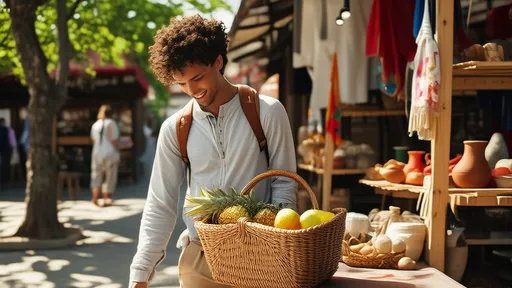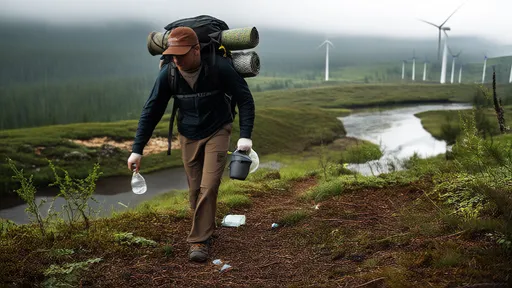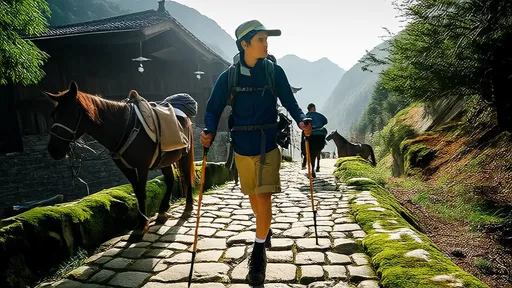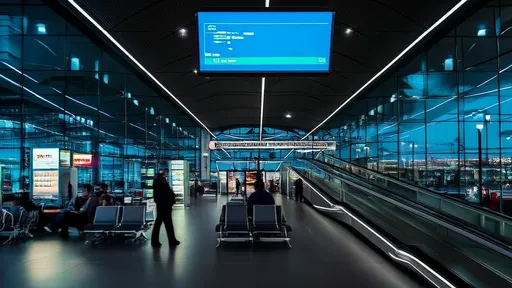In an era where travel has become more accessible than ever, the footprint we leave extends far beyond the sandy beaches or mountain trails we explore. It weaves into the economic and social fabric of the communities that welcome us. Responsible travel is no longer a niche concept but a necessary approach for those who wish to ensure their journeys contribute positively to the places they visit. At the heart of this movement lies conscious consumption—making spending choices that support local economies, preserve cultural heritage, and promote environmental sustainability. This isn’t about grand gestures; it’s about the cumulative impact of many small, thoughtful decisions.
When you choose to spend your money at locally owned businesses, you are directly investing in the community. Unlike international chains or foreign-owned conglomerates, local enterprises are more likely to reinvest their profits back into the area, creating a multiplier effect that benefits residents. These businesses often source their products locally, further supporting regional farmers, artisans, and suppliers. For instance, dining at a family-run restaurant that uses ingredients from nearby farms not only offers you an authentic taste of the region but also helps sustain agricultural traditions and reduces the carbon footprint associated with long-distance food transport.
Moreover, engaging with local artisans and purchasing handmade crafts provides a meaningful connection to the culture you are experiencing. These items carry stories and skills passed down through generations, and your support helps keep these traditions alive. In many parts of the world, traditional crafts are at risk of disappearing due to industrialization and globalization. By choosing to buy directly from the makers, you are not only acquiring a unique souvenir but also contributing to the preservation of cultural identity and providing artisans with a fair income that acknowledges their craftsmanship and dedication.
Accommodation is another significant area where your choices can make a profound difference. Opting for locally owned lodgings, such as boutique hotels, guesthouses, or homestays, ensures that a larger portion of your spending remains within the community. These establishments often employ local staff, use local services, and are more inclined to engage in sustainable practices that respect the natural environment. They can also offer you deeper insights into the destination, with personalized recommendations that you won’t find in generic guidebooks, fostering a more immersive and respectful travel experience.
Transportation within your destination also presents opportunities for responsible consumption. Whenever possible, use public transport, hire local drivers, or even explore on foot or by bicycle. This not only reduces your environmental impact but also supports the local economy. Hiring a local guide for tours can enrich your understanding of the place, providing context and stories that you might otherwise miss. These guides are often passionate ambassadors for their homeland, sharing knowledge that promotes appreciation and respect for the local culture and environment.
Being mindful of your environmental footprint is intrinsically linked to supporting the community. Simple actions, such as carrying a reusable water bottle, avoiding single-use plastics, and respecting natural habitats, demonstrate respect for the local environment and the people who depend on it. Many communities, especially in rural or coastal areas, rely heavily on their natural resources for livelihood and cultural practices. Your efforts to minimize waste and pollution help protect these resources for future generations, ensuring that tourism does not come at the expense of the community’s well-being.
Engaging with the community in a respectful manner is just as important as where you spend your money. Take the time to learn a few phrases in the local language, understand cultural norms, and approach interactions with humility and curiosity. Support community-based tourism initiatives that are designed and managed by local people, ensuring that they have control over how their culture and environment are presented and that they receive a fair share of the benefits. These initiatives often provide more authentic experiences and create opportunities for genuine cultural exchange, fostering mutual respect and understanding.
It’s also crucial to be aware of the potential negative impacts of well-intentioned but misguided actions. Voluntourism, for example, can sometimes do more harm than good if not properly managed. Instead of short-term volunteer projects that may disrupt local economies or fail to address real needs, consider supporting local organizations through donations or by purchasing goods and services that contribute to social enterprises. Many communities have developed their own solutions to challenges; your role as a responsible traveler is to support these efforts in a way that is empowering rather than imposing.
Food is a delightful and direct way to connect with and support a local community. Seek out markets, street food vendors, and restaurants that source their ingredients locally and celebrate regional cuisine. This not only provides a sensory journey through the flavors of the area but also supports small-scale farmers and food producers. In many destinations, culinary traditions are a vital part of cultural heritage, and by choosing to eat locally, you help preserve these traditions and promote sustainable food systems that benefit both people and the planet.
Finally, remember that responsible travel consumption is about mindset as much as action. It requires us to be present, reflective, and willing to step outside our comfort zones. It asks us to consider the long-term consequences of our choices and to prioritize the well-being of the communities we visit over convenience or cost. By embracing this approach, we transform our travels from mere vacations into meaningful journeys that foster connection, understanding, and positive change. The true value of travel lies not in the places we check off a list, but in the relationships we build and the legacy we leave behind.
As travelers, we hold the power to shape the impact of our journeys. Every dollar spent is a vote for the kind of world we want to support. Let’s make it count for the communities that open their homes and hearts to us, ensuring that our adventures contribute to a more equitable and sustainable future for all.

By /Aug 22, 2025

By /Aug 22, 2025

By /Aug 22, 2025

By /Aug 22, 2025

By /Aug 22, 2025

By /Aug 22, 2025

By /Aug 22, 2025

By /Aug 22, 2025

By /Aug 22, 2025

By /Aug 22, 2025

By /Aug 22, 2025

By /Aug 22, 2025

By /Aug 22, 2025

By /Aug 22, 2025

By /Aug 22, 2025

By /Aug 22, 2025

By /Aug 22, 2025

By /Aug 22, 2025

By /Aug 22, 2025

By /Aug 22, 2025